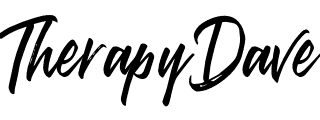Many people are interested in using natural supplements to help their depression or anxiety. In fact, there are quite a few choices for over-the-counter medications and herbal supplements for mental health. Keep in mind that these are not as closely researched as prescription medications, and their side-effects and interactions with other drugs may be not as well understood.
Quick Summary
L-Methylfolate
Folic acid is one of the B vitamins and comes from citrus fruits and leafy green vegetables. It helps your body make new red blood cells to carry oxygen. If you don’t have enough red blood cells, you have anemia, which can make you feel weak, tired, lightheaded, grouchy or cause you to be forgetful or have trouble concentrating. The body breaks down folic acid into L-methylfolate, which is the active form of the vitamin. Unfortunately, some people are unable to break down folic acid into L-Methylfolate.
If your body has a hard time breaking down folic acid, taking L-Methylfolate may be a more effective means for treating folate deficiency.
Omega-3
Having adequate levels of Omega-3 are essential to proper health and have been shown to affect concentration, learning, higher dopamine levels and increased brain neuron growth. Additional research has shown a connection between overall mental health and Omega-3.
Probiotics
There is some evidence that the use of probiotics may encourage the production of serotonin, however this association is implied at best and not directly correlated. Probiotics must be kept refrigerated and discarded after their expiration date. Many people prefer to take these after a course of antibiotics.
SAM-E
Depression can be impacted by taking doses of SAM-E. These pills are sealed individually in foil as exposure to air can affect their potency. SAM-E should never be taken while using another antidepressant.
St. John’s Wort
While the research has been somewhat contradictory, the general consensus is that St. John’s Wort plays a role in depression, anxiety and obsessive-compulsive behaviors. St. John’s Wort should never be taken while using another antidepressant.
Vitamin B-6
Vitamin B6 (pyridoxine) is involved making the neurotransmitters serotonin and norepinephrine, which are chemicals that transmit signals in the brain. Vitamin B6 is also involved in the formation of important nerve cell protein layers. Foods like poultry, pork, nuts and beans contain high levels of vitamin B6. Symptoms of vitamin B6 deficiency include a lack of energy and can cause health problems affecting the nerves, skin, mucous membranes and circulatory system.
Vitamin B-12
B-12 supports nerve tissue and brain cell development and promotes better sleep. It comes from animal products, including meat, milk, cheese, and eggs. If you don’t have enough B-12, you can experience weakness, tiredness or light-headedness. Most B-12 supplements are provided in the form of cyanocobalamin. However, the methylcobalamin version of B-12 (Methyl B-12) is better absorbed and retained by the body than other forms of B12.
Vitamin D3
If you live in areas without sufficient sunlight, suffer from milk allergies or adhere to a strict vegan diet, you may be at risk for vitamin D3 deficiency. Known as the sunshine vitamin, vitamin D3 is produced by the body in response to skin being exposed to sunlight. It is also occurs naturally in a few foods, including some fish, fish liver oils, and egg yolks. The most accurate way to determine if you are vitamin D3 deficient is through a lab test. Low levels of vitamin D3 are associated with increased feelings of depression. While supplements can help, the best method for acquiring vitamin D3 is through direct sunlight. Tanning beds and other forms of artificial lighting don’t offer enough D3 to be considered a viable alternative.
Supplement Cautions
First, there’s the issue that correlation does not imply causation. Just because something is reported to help does not necessarily mean that it had a direct effect. Additionally, there is the issue of the placebo effect. Finally, when the medical industry has money invested in pharmaceuticals, very few (if any) research is done on non-prescriptive solutions.
We don’t know as much about non-FDA-regulated supplements. Statements from manufacturers and anecdotal evidence often make claims that have not been evaluated by the Food and Drug Administration. In fact, on each label it states some variation of the phrase, “This product is not intended to diagnose, treat, or cure any disease.”
Some supplements can be expensive when compared to their prescription counterparts. For example, SAM-E can cost 4-6 times the amount of a generic antidepressant. Another expense is that to the environment: The foil packaging for each individual pill is not recyclable and ends up in the landfill.
Supplements can be just as dangerous as prescription medications when used in the wrong dosages or combinations. For example, vitamin D3 supplements are known to cause an increase in certain types of kidney stones (whereas sunlight does not). As mentioned above, if you take SAM-E while taking another antidepressant, you can be at risk for a dangerous health condition called “serotonin syndrome”. One patient of mine had complications of migraines until we ruled out an over-the-counter supplement that she was taking that reacted badly to her other medications. We’re so concerned about taking “non-natural” medications, but when we take too many non-regulated supplements, we can create serious complications.
ALWAYS consult your medical doctor before making decisions on which supplements to use. Don’t approach supplements with a cavalier attitude and never believe something you’ve read on the internet (including this article) without doing adequate research. It’s better to make an informed decision than none at all.
